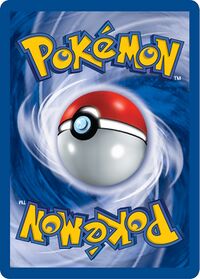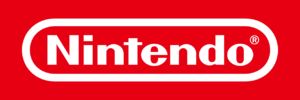Pokémon Trading Card Game

|
This article does not yet meet the quality standards of Bulbapedia. Please feel free to edit this article to make it conform to Bulbapedia norms and conventions. |
- This article is about the Trading Card Game itself. For the Game Boy game related to this game, see Pokémon Trading Card Game (game).
The Pokémon Trading Card Game (Japanese: ポケモンカードゲーム, Pokémon Card Game), abbreviated as Pokémon TCG or PTCG, is one of the most popular and steady aspects of the Pokémon franchise (next to the video game and animated television series). The Pokémon TCG involves buying, collecting, and trading playing cards with various likenesses of Pokémon on them, including some Pokédex information. There is at least one card for every species of Pokémon introduced before Generation V.
History of the Pokémon TCG
The Pokémon TCG was created by Media Factory in Japan, and first released in Japan in 1996. In 1999, Wizards of the Coast was licensed the game and introduced the Pokémon TCG to North America. In 2003, Nintendo of America took over the game from Wizards of the Coast, and is the current producer of cards. During the early part of its run, two Game Boy Color games were also released, Pokémon Trading Card Game and Template:Card GB 2, though only the former was released outside of Japan.
How to play
Players must build a deck of sixty cards using a combination of various "Pokémon" cards (the main type of cards, used to battle), "Trainer" cards (cards with special effects) and "Energy" cards (cards that are required to perform most moves). To win, players must take their six prize cards by "knocking out" their opponent's Pokémon, i.e. reducing the HP to zero. Players may also win when their opponent runs out of Pokémon on the field, or if their opponent cannot draw a card at the beginning of their turn.
Unlike traditional card games which use a single deck of 52 preset cards, trading card games (TCGs) are constantly and continuously growing. New cards with new game abilities are released at a steady interval in order to keep the game fresh and alive. The only cost of TCGs, however, is that they force players to constantly keep in touch with the game, as well as forcing them to purchase new cards from newly released sets. Players who do not stay current run the risk of falling behind other players. The Pokémon TCG requires a deck of 60 cards for amateur or organized tournamental play. Shorter matches can be held with "half-decks" consisting of 30 cards instead. During a 60 card match, only four of any one card, excluding Basic Energy cards, are allowed in each deck. This is further limited to two of any one card in a half-deck match.
Fans have also created their own game rules and playing methods. Their websites are devoted in providing alternative playing methods for fans.
Card types
Wizards of the Coast (English) sets
- Original releases
- Gym series
- Neo series
- Legendary Collection
- e-Card series
- Southern Islands
- Wizards Black Star Promos
- Best of Game Cards
Wizards of the Coast (English) unreleased sets
Nintendo (English) sets
Sets
- EX series
- δ Delta Species series
- Diamond & Pearl series
- Platinum Series
- LEGEND Series
Other Merchandise
- EX Battle Stadium
- EX Series Value Pack
- 2004 World Championships
- 2005 World Championships
- 2006 World Championships
- 2007 World Championships
- 2008 World Championships
- 2009 World Championships
- Nintendo Black Star Promos
- DP Black Star Promos
- HGSS Black Star Promos
- POP Series 1-9
Media Factory/The Pokémon Company (Japanese) sets
Exclusive Sets
Exclusive Decks
- e-Series
- ADV Series
- PCG Series
- DP Series
- DPt Series
- L Series
- Japan Pokémon Expert Deck Leafeon vs Metagross Online
- Japan World Championships Deck: Torterra
- Japan World Championships Deck: Magmortar
- Japan World Championships Deck: Blastoise
- Japan World Championships Deck: Raichu
Promotional Series
- Unnumbered Promotional cards
- P Promotional cards
- T Promotional cards
- J Promotional cards
- ADV-P Promotional cards
- PCG-P Promotional cards
- PLAY & PPP Promotional cards
- DP-P Promotional cards
- DPt-P Promotional cards
- L-P Promotional cards
- Unreleased cards
External links
- Pokémon.com TCG section Official English TCG Resource
- Pokémon-Card.com Official Japanese TCG Resource (Japanese)
- The PokéGym
- PokéBeach
- Pokémon Marriland
On Bulbagarden forums

|
This article is part of Project TCG, a Bulbapedia project that aims to report on every aspect of the Pokémon Trading Card Game. |





